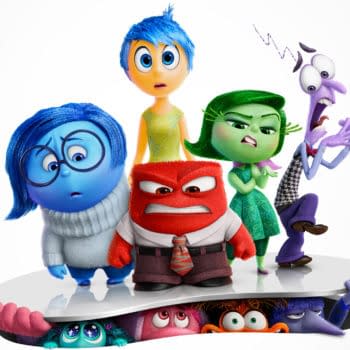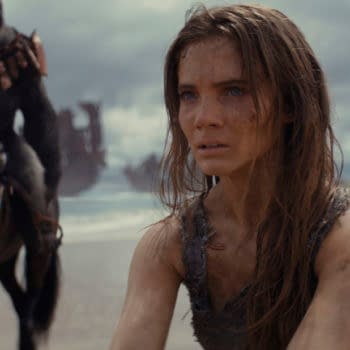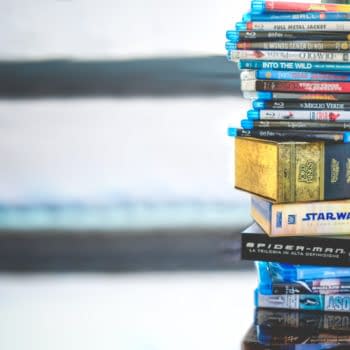Posted in: Movies, Recent Updates, TV | Tagged: film, netflix, tv
Binge Viewing Has Changed The Way We Watch – But Has Netflix Stolen Away What's Most Important?

When it was announced that, in early 2012, Netflix would finally be hitting British shores, I knew that the film-and-television-viewing part of my life was about to change. And that's a pretty major part.
In the year and a half since, I have spent just over £100 on a subscription to a service that has allowed me to watch entire series of Lost, Twin Peaks, Breaking Bad, The Office US, Spaced, Arrested Development, Firefly… the list goes on, seemingly forever.
With the addition of countless films and stand-up shows, Netflix really is an incredible value entertainment beast. We all know this. And whilst we mustn't forget Netflix's rivals, they can easily be bundled into the same term as, for now, the leading online streaming service still massively dominates the market. I'm kind of using Netflix as a generic.
What's really interesting to me is the way in which Netflix has completely changed the way we, I, and many others it seems, watch TV shows. It not only allows for binge-viewing, it actively encourages it.
With the widely talked about resurrection of Arrested Development at the beginning of May this year, audiences became more aware than ever before of the difference binge viewing can make to the enjoyment of a series. And it's huge.
If Arrested Development had been re-introduced as a regular TV show, like it was originally, and aired every Sunday night, we still wouldn't even be half way through the 15 episode series.
One of the biggest criticisms of the revived show was that the 4th season was chock full of complicated jokes that relied on an impossibly close attention to detail. I propose that the format the show was presented is the reason why it became so confused.
Given a week's processing time in between episodes may just have made the overlapping episodes easier to digest and manage.
Audiences that have their enjoyment of a series parsed out over a longer period of time may actually get more out of it. For instance, by watching all of Lost over the course of 2 months, I encountered no such thing as a cliffhanger – everything was just a single click away.
But the cliffhanger is one of the most effective narrative tools available to television writers. Especially in the case of a show like Lost.
So, without any time being left, by force, to just flap in the wind, I instead felt drained by the sheer number of twists and changes of direction that the show would take.
I was exhausted because I was unable to take any down time.
Unable? Yes unable. When the next episode is literally one click away, I would challenge any avid TV watcher to tear themselves from the screen. In fact, though most Netflix apps on consoles, smart TVs and even the service's home website, playback doesn't just stop at the end of the episode, and the viewer will get just 15 seconds to stop the flow before they're thrown into the next instalment.
Netflix knows this is exactly what we want. Okay, maybe not exactly – 15 seconds seems unnecessarily long. But this system shows us that Netflix wants us to carry on watching, long into the early hours.
So it's the gaps between episodes that are the saddest loss in a binge-viewing culture. No matter how much "like a film" any series might be, there is always going to be a huge difference, which will stem from a reliance on the audience's long term attentiveness.
Breaking Bad may follow the same intricate storyline over the course of 5 seasons, but watching every chapter all in one go is surely just too much to manage. The same can be said for David Fincher's version of House Of Cards, a show which follows a narrative far too complicated and slow for even the most patient viewer to find comfortable for 10 straight hours.
Then again, there are still bound to be gaps in viewing, even when binging, as it would be very physically testing to watch all 64 available episodes of Mad Men in one sitting.
And so comes another issue. By giving the viewer the choice of when to stop, the programme makers lose their tried and tested ability to manipulate tension over the course of a series. Certain episodes end with massive cliffhangers which can be easily overlooked by someone who has another couple of hours to spend in front of the laptop.
But then, on the other hand, that viewer could reach the end of a "filler episode" and have less desire to come back soon, because they are left without reason to. At least with scheduled viewing, the audience has to come back in a week, whilst the binge viewer can quit binging for months because they don't risk missing out… and then forget about the show entirely. Trust me, it happens.
But of course, Netflix is in no way the first to throw this manner of television-watching upon us. DVD box sets existed for years before Netflix's instant viewing began. But never have entire series been so easily accessed, or encouraged for binge consumption on the same scale.
On the other hand, you don't need Netflix to indulge in this fashion. If a viewer really wants to watch 3 straight seasons of Game of Thrones in a hurry, they'll always be able watch it on disc, or find it online in a very naughty way.
Netflix might act as a strong deterrent against piracy, but with series like Thrones probably never coming to the platform, many fans, especially non-US audiences, end up turning to the dark side, with Thrones being the most pirated show of last year. In fact, a shocking number also pirated the new Arrested Development season, despite it being exclusively available to Netflix, which costs just $7.99 in the US or just £5.99 in the UK – a price, you would think, low enough to keep online TV fans on the straight and narrow.
I would hope that what really matters when watching television is what the viewer wants, that the customer is always right. What digital platforms succeed in doing is giving the audience an even greater choice of how they absorb media. Whether binging or having an ounce of self control, it is always the audience's decision, even responsibility.
Much as TV programmes now make room for adverts, and programme makers adjust their formats to work around the ad break to the best of their advantage, it surely won't be long before the same considerations are made for the behaviours of a binging audience. What the resulting shows will look like however, I can only guess.
I suppose I'll just have to keep cramming TV until I see for myself.



















